
Join interdisciplinary experts to hear how to promote and ensure trustworthiness in scientific and other research. Optimizing and signaling the trustworthiness of research is crucial to maintaining the trust of colleagues, participants, those who apply our research, and the wider public. National leaders will discuss the expectations of all these collaborators and audiences, including research funders, partners, participants, trainees, and journals. As a large, public, land-grant research university, we aim to explore these vital issues with our faculty, staff, trainees, students, and community, as well as a national audience.
Conference Agenda
Annual Research Ethics Day Conference - What Makes Your Research Trustworthy? Threats and Opportunities
|
9:00am
|
Welcome & Land Acknowledgment |
|
|
Moderator: Susan M. Wolf, JD, Regents Professor; McKnight Presidential Professor of Law, Medicine & Public Policy; Faegre Baker Daniels Professor of Law; Professor of Medicine; Chair, Consortium on Law and Values in Health, Environment & the Life Sciences, University of Minnesota Shashank Priya, PhD, Vice President for Research; Professor of Chemical Engineering and Materials Science, University of Minnesota |
|
9:15am |
Trustworthiness in Scientific Research: Earning & Keeping Public Trust |
|
|
Moderator: Susan M. Wolf, JD, Regents Professor; McKnight Presidential Professor of Law, Medicine & Public Policy; Faegre Baker Daniels Professor of Law; Professor of Medicine; Chair, Consortium on Law and Values in Health, Environment & the Life Sciences, University of Minnesota Kathleen Hall Jamieson, PhD, Elizabeth Ware Packard Professor of Communication; Director, Annenberg Public Policy Center, University of Pennsylvania Brian A. Nosek, PhD, Professor of Psychology; Executive Director, Center for Open Science, University of Virginia |
|
10:15am |
What Do Funders Expect? Promoting Trustworthiness from Peer Review through Project Execution |
|
|
Moderator: Peter Crawford, MD, PhD, Professor of Medicine; Associate Dean for Research Operations, Medical School; Vice Chair for Research, Dept. of Medicine; Director, Division of Molecular Medicine, University of Minnesota Lyric A. Jorgenson, PhD, Acting Associate Director for Science Policy and Acting Director of the Office of Science Policy, National Institutes of Health (NIH) Rebecca Keiser, PhD, MSc, Chief of Research Security Strategy and Policy, National Science Foundation (NSF) |
|
11:15am |
Break |
|
11:30am |
What Do Research Partners and Participants Expect? Beyond Promises to Practice |
|
|
Moderator: Joanne Billings, MD, MPH, Associate Professor of Medicine; IRB Chair, University of Minnesota Derek M. Griffith, PhD, Professor of Health Management and Policy; Founder and Co-Director, Georgetown Racial Justice Institute (RJI); Founder and Director, Center for Men's Health Equity, Georgetown University Pat Furlong, RN, BSN, President & CEO, Parent Project Muscular Dystrophy (PPMD) |
|
12:30pm |
Lunch Break |
|
1:00pm |
What Do Research Collaborators and Trainees Expect? Ensuring Research Integrity, Mentorship & Accountability |
|
|
Moderator: Danielle Rintala, MS, Director, Risk Intelligence and Compliance, Office of the Vice President for Research, University of Minnesota Angela Byars-Winston, PhD, Professor of Medicine; Director of Research and Evaluation, UW Institute for Diversity Science; Associate Director, Collaborative Center for Health Equity; Faculty Lead, Center for the Improvement of Mentored Experiences in Research, University of Wisconsin - Madison C.K. Gunsalus, JD, Director, National Center for Professional and Research Ethics (NCPRE); Professor Emerita of Business; Research Professor, Coordinated Sciences Laboratory, University of Illinois Urbana-Champaign |
|
2:00pm |
What Do Journals Expect? From Review and Publication to Concern and Retraction |
|
|
Moderator: Lisa German, MSLIS, University Librarian and Dean of Libraries; McKnight Presidential Professor, University of Minnesota Veronique Kiermer, PhD, Chief Scientific Officer, PLOS, the Public Library of Science; Former-Executive Editor, Nature Ivan Oransky, MD, Co-Founder, Retraction Watch; Editor-in-Chief, Spectrum; Distinguished Writer in Residence, Arthur L. Carter Journalism Institute, New York University |
|
2:55pm |
Closing Remarks |
|
|
|
|
3:00pm |
Adjourn |
Speaker Biographies

Joanne Billings, MD, MPH, is Associate Professor of Medicine in the Division of Pulmonary, Allergy, Critical Care and Sleep Medicine at the University of Minnesota. Dr. Billings serves as Chair of the Institutional Review Board in the University of Minnesota’s Human Research Protection Program. Her primary research and clinical work focuses on cystic fibrosis (CF). She has a particular interest in women's health issues in patients with CF. Dr. Billings is also a Co-Investigator in CF drug development studies at the University.
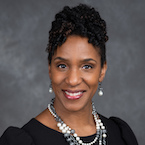
Angela Byars-Winston, PhD, is Professor, Division of General Internal Medicine within the Department of Medicine at the University of Wisconsin - Madison. She is also the Director of Research and Evaluation in the UW Institute for Diversity Science, Associate Director in the Collaborative Center for Health Equity, and Faculty Lead in the Center for the Improvement of Mentored Experiences in Research. Dr. Byars-Winston’s research examines cultural influences on academic and career development, especially for women and individuals from underrepresented racial and ethnic groups in the sciences, engineering, and medicine, with the aim of broadening their participation in STEM fields. Dr. Byars-Winston chaired the National Academies committee that produced the 2019 report on “The Science of Effective Mentoring in STEMM.”
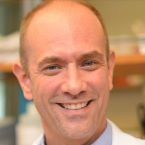
Peter Crawford, MD, PhD, is Vice Chair for Research, Department of Medicine; Associate Dean for Research Operations, Medical School; Director, Division of Molecular Medicine; and Professor of Medicine, Division of Molecular Medicine, at the University of Minnesota. Dr. Crawford is an elected member of American Society for Clinical Investigation. Dr. Crawford's laboratory focuses on the role of integrative metabolism, with key relevance to heart failure and metabolic diseases. As obesity and cardiovascular disease are among the leading causes of morbidity and mortality worldwide, his research focuses on the interplay between intermediary metabolism and these disease processes.

Pat Furlong, RN, BSN, is the Founding President and CEO of Parent Project Muscular Dystrophy (PPMD), the largest nonprofit organization in the United States solely focused on Duchenne muscular dystrophy (Duchenne). Its mission is to improve the treatment, quality of life, and long-term outlook for all individuals affected by Duchenne through research, advocacy, education, and compassion. Ms. Furlong has served on the boards of the Genetic Alliance and the National Organization for Rare Disorders, as well as the National Institutes of Health’s Muscular Dystrophy Coordinating Committee, the Institute of Medicine’s Committee on Pediatric Studies Conducted Under BPCA and PREA, and the FDA’s Molecular and Clinical Genetics Panel.

Lisa German, MSLIS, is University Librarian and Dean of Libraries at the University of Minnesota Libraries. The University Libraries system encompasses 12 libraries on the Twin Cities campus, historically rich collections, and nationally recognized model programs in technology development, information literacy, and new models for scholarly communication. Notable for her expertise in collections, technical services, organizational and workflow assessment, as well as strategy, German has been a sought-after consultant to academic research libraries on an international scale.
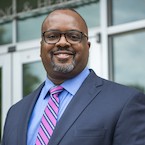
Derek M. Griffith, PhD, is a Founding Co-Director of the Racial Justice Institute, Founder and Director of the Center for Men’s Health Equity, Member of the Lombardi Comprehensive Cancer Center, and Professor of Health Management & Policy and Oncology at Georgetown University. Trained in psychology and public health, Dr. Griffith’s research focuses on developing strategies to achieve racial, ethnic, and gender equity in health. He specializes in interventions to promote Black men's health and well-being and interventions to address racism in organizations and to mitigate the effects of structural racism on health. He was named a Fellow of the American Academy of Health Behavior for his significant contributions to the field of health behavior research.

C.K. Gunsalus, JD, is a nationally recognized expert, speaker, author and workshop presenter on matters of research integrity, ethics, and professionalism in academia. She is the Director of the National Center for Professional and Research Ethics (NCPRE), Professor Emerita of Business, and Research Professor at the Coordinated Sciences Laboratory, University of Illinois Urbana-Champaign. Gunsalus was the PI for the centerpiece project of NCPRE, Ethics CORE, a national online ethics resource center initiated with $1.5M from the National Science Foundation. She has been on the faculty of the colleges of Business, Law, and Medicine at the University of Illinois at Urbana-Champaign and served as Special Counsel in the Office of University Counsel.
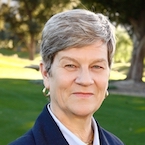
Kathleen Hall Jamieson, PhD, is the Elizabeth Ware Packard Professor of Communication at the University of Pennsylvania’s Annenberg School for Communication, the Walter and Leonore Annenberg Director of the University’s Annenberg Public Policy Center, and Program Director of the Annenberg Retreat at Sunnylands. She is the Co-Founder of FactCheck.org and its subsidiary site, SciCheck, and Director of The Sunnylands Constitution Project, which has produced more than 30 award-winning films on the Constitution for high school students. Jamieson is a member of the American Philosophical Society and the National Academy of Sciences, and a Distinguished Scholar of the National Communication Association. She is a member of the National Academy of Sciences Strategic Council for Research Excellence, Integrity, and Trust.

Lyric A. Jorgenson, PhD, is the Acting Associate Director for Science Policy and the Acting Director of the Office of Science Policy at the National Institutes of Health (NIH). In this position, she provides senior leadership in the development and oversight of cross-cutting biomedical research policies and programs considered to be of high-priority to NIH and the United States Government. Prior to this, she served in numerous roles across the agency, including Deputy Director of the Office of Science Policy, and has led the development of high impact science and policy initiatives such as the Brain Research through Advancing Innovative Neurotechnologies (BRAIN) Initiative and the National Center for Advancing Translational Sciences (NCATS). Dr. Jorgenson is a member of the National Academy of Sciences Strategic Council on Research Excellence, Integrity, and Trust.
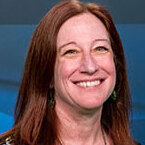
Rebecca Keiser, PhD, MSc, is the Chief of Research Security Strategy and Policy at the National Science Foundation (NSF). From 2015 to 2021, Dr. Keiser served as Head of the Office of International Science and Engineering. Prior to NSF, she was a Special Advisor to the National Aeronautics and Space Administration Administrator and an Executive-In-Residence at American University. Dr. Keiser also served as Assistant to the Director for International Relations at the White House Office of Science and Technology Policy, where she provided policy guidance to the President's science advisor. Her experience covers science and technology policy, agreements and other cooperative efforts.

Veronique Kiermer, PhD, is Chief Scientific Officer at PLOS, the Public Library of Science, where she oversees the editorial department and the development of services, products, and policies to promote open science. Before joining PLOS in 2015, she was Executive Editor and Director of Author and Reviewer Services for Nature Publishing Group. In that capacity she oversaw editorial and research integrity policies across the Nature journals. She started her career in publishing as the founding Chief Editor of Nature Methods. Dr. Kiermer has served on the Board of Directors of ORCID (2016-21) and as its chair from Feb. 2017 to Feb. 2020. In 2020 she became an advisor for PREreview. Dr. Kiermer is a member of the National Academy of Sciences Strategic Council for Research Excellence, Integrity, and Trust.

Brian A. Nosek, PhD, is a Professor of Psychology at the University of Virginia. Dr. Nosek is also Executive Director and Co-Founder of the Center for Open Science. He is a member of the implicit cognition research group that integrates basic psychological research, methodological and technological innovation, and public education to advance understanding of implicit cognition - thoughts and feelings that exist outside of conscious awareness or conscious control. The group includes students and academics in social and cognitive psychology, quantitative methodology, and computer science and communicates with academics and professionals in business, education, law, public policy, medicine, and health. He is a member of the National Academy of Sciences Strategic Council for Research Excellence, Integrity, and Trust.

Ivan Oransky, MD, is Co-Founder of Retraction Watch, Editor-in-Chief of Spectrum, and Distinguished Writer in Residence at New York University's Arthur L. Carter Journalism Institute. In 2017-21 he served as President of the Association of Health Care Journalists. Dr. Oransky was previously Vice President of Editorial at Medscape, Global Editorial Director of MedPage Today, Executive Editor of Reuters Health, and held editorial positions at Scientific American and The Scientist. He is the recipient of the 2015 John P. McGovern Medal for Excellence in Biomedical Communication from the American Medical Writers Association.

Shashank Priya, PhD, serves as the University of Minnesota’s Vice President for Research. In this position, he oversees a $1+ billion research enterprise across all campuses and facilities. He manages units responsible for administration of sponsored projects, research and regulatory compliance, and technology commercialization, as well as 10 interdisciplinary academic centers and institutes. He also oversees a growing corporate engagement portfolio for the University. Dr. Priya is a Professor of Chemical Engineering and Materials Science.

Danielle Rintala, MS, directs the Risk Intelligence and Compliance Team (RIACT) in the Office of the Vice President for Research at the University of Minnesota. RIACT monitors near- and long-term research risks and conducts compliance investigations to ensure compliance in research-associated financial transactions and research registries. She also manages Responsible Conduct of Research (RCR) training and the Certified Approver program. Prior to joining the University of Minnesota, she was the Associate Director of Research Compliance and Biosafety Officer at the University of Wisconsin-Milwaukee.
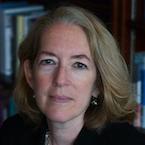
Susan M. Wolf, JD, is McKnight Presidential Professor of Law, Medicine & Public Policy; Faegre Baker Daniels Professor of Law; and Professor of Medicine at the University of Minnesota. Prof. Wolf is Chair of the Consortium on Law and Values in Health, Environment & the Life Sciences. She is an elected member of the National Academy of Medicine (NAM) and a Fellow of the American Association for the Advancement of Science. Her research has been supported by the National Institutes of Health (NIH) and National Science Foundation (NSF), as well as private foundations including the Robert Wood Johnson Foundation and The Greenwall Foundation. She is a member of the National Academy of Sciences Strategic Council for Research Excellence, Integrity, and Trust.
Planning Committee

Susan M. Wolf, JD, is McKnight Presidential Professor of Law, Medicine & Public Policy; Faegre Baker Daniels Professor of Law; and Professor of Medicine at the University of Minnesota. Prof. Wolf is Chair of the Consortium on Law and Values in Health, Environment & the Life Sciences. She is an elected member of the National Academy of Medicine (NAM) and a Fellow of the American Association for the Advancement of Science. Her research has been supported by the National Institutes of Health (NIH) and National Science Foundation (NSF), as well as private foundations including the Robert Wood Johnson Foundation and The Greenwall Foundation. She is a member of the National Academy of Sciences Strategic Council for Research Excellence, Integrity, and Trust.

Frances Lawrenz, PhD, is Associate Vice President for Research and Wallace Professor of Teaching and Learning in the Department of Educational Psychology, which is part of the College of Education and Human Development, University of Minnesota. She has been recognized by the American Educational Research Association, receiving the 2016 Research on Evaluation SIG Distinguished Scholar Award and by the National Association for Research in Science Teaching, with the Distinguished Contributions to Science Education through Research Award in 2014.

Shashank Priya, PhD, serves as the University of Minnesota’s Vice President for Research. In this position, he oversees a $1+ billion research enterprise across all campuses and facilities. He manages units responsible for administration of sponsored projects, research and regulatory compliance, and technology commercialization, as well as 10 interdisciplinary academic centers and institutes. He also oversees a growing corporate engagement portfolio for the University. Dr. Priya is a Professor of Chemical Engineering and Materials Science.

Danielle Rintala, MS, directs the Risk Intelligence and Compliance Team (RIACT) in the Office of the Vice President for Research at the University of Minnesota. RIACT monitors near- and long-term research risks; conducts compliance investigations, ensuring compliance in research-associated financial transactions and research registries; and manages Responsible Conduct of Research (RCR) training and the Certified Approver program. Prior to joining the University of Minnesota, she was the Associate Director of Research Compliance and Biosafety Officer at the University of Wisconsin-Milwaukee.
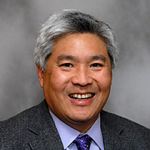
Douglas Yee, MD, is Director of the Masonic Cancer Center, Professor of Medicine and Pharmacology, and John H. Kersey Chair in Cancer Research at the University of Minnesota. As Director of the Cancer Center, he serves as the point person for all cancer research at the University. He is a medical oncologist with a specialty in breast cancer. His laboratory has been interested in the regulation of cancer cells by the insulin-like growth factors (IGFs) and insulin. He serves as the site Principal Investigator on several clinical trials that employ experimental therapies targeted against IGF receptor and the PI3K pathway. He is Chair of the Agent Selection Committee and serves on the Executive Committee of the I-SPY2 trail, which is designed to validate investigational therapies in the neoadjuvant treatment of breast cancer.
Advisory Committee
2023 Research Ethics Day Conference Advisory Committee
Resources
Advanging Earth and Space Science. Home page. 2023.
Alfred P. Sloan Foundation. Home page. 2023.
Allison D, Brown A, George B et al. Reproducibility: A tragedy of errors. Nature 2016;530:27–29;doi:10.1038/530027a.
Anderson A, Griffith DM. Measuring the Trustworthiness of Health Care Organizations and Systems. The Milbank Quarterly 2022;100.
Annenberg Public Policy Center University of Pennsylvania. Home page. 2023.
Bakker C, Riegelman A. Retracted Publications in Mental Health Literature: Discovery across Bibliographic Platforms. Journal of Librarianship and Scholarly Communication 2018;6(1):eP2199;doi:10.7710/2162-3309.2199.
Beech BM, Calles-Escandon J, Hairston KG, Langdon SE, Latham-Sadler BA, Bell RA. Mentoring programs for underrepresented minority faculty in academic medical centers: a systematic review of the literature. Academic Medicine 2013;88(4):541-9;doi: 10.1097/ACM.0b013e31828589e3.
Begley C, Ellis L. Raise standards for preclinical cancer research. Nature 2012;483, 531–533;doi:10.1038/483531a.
Bik EM, Casadevall A, Fang FC. The Prevalence of Inappropriate Image Duplication in Biomedical Research Publications. ASM Microbe 2016.
Bordes-Edgar V, Arredondo P, Robinson Kurpius S, Rund J. A Longitudinal Analysis of Latina/o Students’ Academic Persistence. Journal of Hispanic Higher Education 2011;10(4);doi:10.1177/153819271142331.
Borenstein S, Fingerhut H. Americans’ trust in science now deeply polarized, poll shows. AP News 2022.
Boyle P. Why do so many Americans distrust science? Association of American Medical Colleges 2022.
Budd JM, Coble Z, Abritis A. Proceedings of the Association for Information Science and Technology. Computer Science 2016;53(1):1-9;doi:10.1002/pra2.2016.14505301055.
Byars-Winston AM, Branchaw J, Pfund C, Leverett P, Newton J. Culturally Diverse Undergraduate Researchers' Academic Outcomes and Perceptions of Their Research Mentoring Relationships. International Journal of Science Education 2015;37(15):2533-2554;doi: 10.1080/09500693.2015.1085133.
Byars-Winston AM, Lund Dahlberg M. The Science of Effective Mentorship in STEMM. National Academies of Sciences, Engineering, and Medicine 2019.
Calisher C, Carroll D, Colwell R, Corley RB, Daszak P, Drosten C, Enjuanes L, Farrar J, Field H, Golding J, Gorbalenya A, Haagmans B, Hughes JM, Karesh WB, Keusch GT, Lam SK, Lubroth J, Mackenzie JS, Madoff L, Mazet J, Palese P, Perlman S, Poon L, Roizman B, Saif L, Subbarao K, Turner M. Statement in support of the scientists, public health professionals, and medical professionals of China combatting COVID-19. Lancet 2020;395(10226):e42-e43;doi: 10.1016/S0140-6736(20)30418-9.
Campbell TA, Campbell De, Faculty/Student Mentor Program: Effects on Academic Performance and Retention. Research in Higher Education 1997;38:727–742;doi:10.1023/A:1024911904627.
Center for Men’s Health Equity. Home page. 2023.
Center for Open Science. Home page. 2022.
Chemers MM, Zurbriggen EL, Syed M, Goza BK, Bearman S. The Role of Efficacy and Identity in Science Career Commitment Among Underrepresented Minority Students. Journal of Social Issues 2011;67(3):469-491;doi:10.1111/j.1540-4560.2011.01710.x.
Child Muscle Weakness. Home page. 2023.
Cho CS, Ramanan RA, Feldman MD. Defining the ideal qualities of mentorship: a qualitative analysis of the characteristics of outstanding mentors. American Journal of Medicine 2011;124(5):453-8;doi:10.1016/j.amjmed.2010.12.007.
Colapinto J. Mother courage: a family tragedy and a scientific crusade. New Yorker 2010:64-75.
Committee on Publication Ethics. Home page. 2022.
Confronting Challenges in Academic Units. Home page. 2023.
Conley R. 5 Stages of Distrust and How it Destroys Your Relationships. Leading with Trust 2014
The Duchenne Registry. Home page. 2023.
Ebersole CR, Axt JR, Nosek BA. Scientists’ Reputations Are Based on Getting It Right, Not Being Right. PLOS Biology 2016;14(5):e1002460;doi:10.1371/journal.pbio.1002460.
The Economist. How science goes wrong. The Economist 2013.
Farhi P, Barr J. The media called the ‘lab leak’ story a ‘conspiracy theory.’ Now it’s prompted corrections - and serious new reporting. The Washington Post 2021.
Ferguson C. PubPeer strikes again: Leukemia paper retracted for image duplications. Retraction Watch 2014.
Funk C, Hefferon M, Kennedy B, Johnson C. Trust and Mistrust in Americans’ Views of Scientific Experts. Pew Research Center 2019.
Garman KA, Wingard DH, Reznik V. Development of Junior Faculty's Self-efficacy: Outcomes of a National Center of Leadership in Academic Medicine. Academic Medicine 2001;76(10):173-175.
Gloria CT, Dolphin K, Steinhardt MA. Positive affectivity predicts successful and unsuccessful adaptation to stress. Motivation and Emotion 2013;37(1);doi:10.1007/s11031-012-9291-8.
Goold SD. Trust, Distrust and Trustworthiness. Journal of General Internal Medicine 2002;17(1):79-81;doi:10.1046/j.1525-1497.2002.11132.x.
Grey A, Avenell A, Gamble G et al. Assessing and Raising Concerns About Duplicate Publication, Authorship Transgressions and Data Errors in a Body of Preclinical Research. Science and Engineering Ethics 2019;26:2069–2096;doi:10.1007/s11948-019-00152-w
Grey A, Bolland MJ, Avenell A, Klein AA, Gunsalus CK. Check for Publication Integrity Before Misconduct. Nature 2020;577:167-169;doi:10.1038/d41586-019-03959-6.
Griffith DM, Jaeger EC, Bergner EM, Stallings S, Wilkins CH. Determinants of Trustworthiness to Conduct Medical Research: Findings from Focus Groups Conducted with Racially and Ethnically Diverse Adults. Journal of General Internal Medicine 2020;35:2969-2975;doi:10.1007/s11606-020-05868-1.
Griffith GJ, Morris TT, Tudball MJ et al. Collider bias undermines our understanding of COVID-19 disease risk and severity. Nature Communications 2020;11:5749;doi:10.1038/s41467-020-19478-2.
Gunsalus CK, Marcus AR, Oransky I. Institutional Research Misconduct Reports Need More Credibility. JAMA 2018;319(13):1315-1316;doi:10.1001/jama.2018.0358.
Gunsalus CK, McNutt MK, Martinson B, Faulkner L, Nerem RM. Overdue: a US Advisory Board for Research Integrity. Nature 2019;566:173-175;doi:10.1038/d41586-019-00519-w.
Gunsalus CK, Robinson AD. Nine Pitfalls of Research Misconduct. Nature 2018;557:297-299;doi:10.1038/d41586-018-05145-6.
Harrison NL, Sachs JD. A call for an independent inquiry into the origin of the SARS-CoV-2 virus. The Proceedings of the National Academy of Sciences 2022;119(21);doi:10.1073/pnas.2202769119.
Hathaway RS, Nagda BA, Gregerman SR. The Relationship of Undergraduate Research Participation to Graduate and Professional Education Pursuit: An Empirical Study. Journal of College Student Development 2002;43(5).
HealthyChildren.org. Home page. 2023.
hhmi. HHMI’s Commitment to Diversity, Equity, and Inclusion. The Howard Hughes Medical Institute 2021.
Howard Hughes Medical Institute. Home page. 2023.
Ioannidis JPA. Why Most Published Research Findings Are False. PLOS Medicine 2005;doi:10.1371/journal.pmed.0020124.
Jaiswal J, Halkitis PN. Towards a More Inclusive and Dynamic Understanding of Medical Mistrust Informed by Science. Behavioral Medicine 2019;45(2):79-85;doi:10.1080/08964289.2019.1619511.
Jamieson KH, McNutt MK, Kiermer V, Sever R. Signaling the Trustworthiness of Science. PNAS 2019;116(39):19231-19236;doi:10.1073/pnas.191303911.
Jorgenson LA, Wolinetz CD, Collins FS. Incentivizing a New Culture of Data Stewardship: The NIH Policy for Data Management and Sharing. JAMA 2021;326(22):2259-2260;doi:10.1001/jama.2021.20489.
Kaye J, Curren L, Anderson N, Edwards K, Fullerton SM, Kanellopoulou N, Lund D, MacArthur DG, Mascalzoni D, Shepherd J, Taylor PL, Terry SF, Winter SF. From Patients to Partners: Participant-Centric Initiatives in Biomedical Research. Nature Reviews Genetics 2012;13:371-376;doi:10.1038/nrg3218.
Long G. Fundamental Research Security. The MITRE Corporation 2019.
Lopatto D. Undergraduate Research Experiences Support Science Career Decisions and Active Learning. CBE Life Science Education 2007;6(4):297-306;doi:10.1187/cbe.07-06-0039.
Lupia A. Practical and Ethical Reasons for Pursuing a More Open Science. PS: Political Science & Politics 2021;54(2):301-304;doi:10.1017/S1049096520000979.
Macleod MR, Collings AM, Graf C, Vinson V, et al. The MDAR (Materials Design Analysis Reporting) Framework for Transparent Reporting in the Life Sciences. PNAS 2021;118(17);doi:0.1073/pnas.2103238118.
Macleod MR, Lawson McLean A, Kyriakopoulou A, Serghiou S, de Wilde A, et al. Risk of Bias in Reports of In Vivo Research: A Focus for Improvement. PLOS Biology 2015;13(10): e1002273;doi:10.1371/journal.pbio.1002273.
Marcus A. ‘I’m starting the year off with something I didn’t expect to ever do: I’m retracting a paper.’ Retraction Watch 2020.
Marcus A. ‘I thought I had messed up my experiment’: How a grad student discovered an error that might affect hundreds of papers. Retraction Watch 2020.
McFarling UL. 20 years ago, a landmark report spotlighted systemic racism in medicine. Why has so little changed? STAT News 2022.
McGee R, Keller JL. Identifying future scientists: predicting persistence into research training. CBE Life Science Education 2007;6(4):316-31;doi:10.1187/cbe.07-04-0020.
McGuire AL, Majumder MA, Cook-Deegan R, et al. Importance of Participant-Centricity and Trust for a Sustainable Medical Information Commons. Journal of Law, Medicine & Ethics 2019;15(1):12-20:doi:10.1177/1073110519840.
McIntosh LD, Sumner J, Vitale C. The State of Trust & Integrity in Research. Ripeta 2022;doi:10.6084/m9.figshare.20497062.v3.
McNutt MK, Bradford M, Drazen JM, Verma IM. Transparency in Authors’ Contributions and Responsibilities to Promote Integrity in Scientific Publication. PNAS 2018;115(11):2557-2560.
McNutt MK, Córdova FA, Allison DB. The Strategic Council for Research Excellence, Integrity, and Trust. PNAS 2021;118(41):e2116647118;doi:10.1073/pnas.211664711.
Mcnutt MK. Journals unite for reproducibility. Science 2014;346(6210)679;doi:10.1126/science.aaa1724.
Mumford MD, Connelly S, Brown RP, Murphy ST, Hill JH, Antes AL, Wapples EP, Devenport LD. A Sensemaking Approach to Ethics Training for Scientists: Preliminary Evidence of Training Effectiveness. Ethics & Behavior 2008;18(4):315-339;doi:10.1080/10508420802487815.
Mumford MD, Murphy ST, Connelly S, Hill JH, Antes AL, Brown RP, Devenport LD. Environmental Influences on Ethical Decision Making: Climate and Environmental Predictors of Research Integrity. Ethics & Behavior 2007;17:4:337-366;doi: 10.1080/10508420701519510.
Munar DE. We must stop fanning the flames of medical mistrust. Crain’s Chicago Business 2020.
Murray D, Siler K, Larivière, Chan WM, Collings AM, Raymond J, Sugimoto CR. Author-Reviewer Homophily in Peer Review. bioRxiv 2019;doi:10.1101/400515.
Nagda BA, Gregerman SR, Jonides J, von Hippel W, Lerner Tables JS. Undergraduate Student-Faculty Research Partnership Affect Student Retention. The Review of Higher Education 1998:55-72.
Nanyang Technological University Singapore. Home Page. 2023
National Academies of Sciences, Engineering, and Medicine. Enhancing Scientific Reproducibility in Biomedical Research Through Transparent Reporting: Proceedings of a Workshop. The National Academies Press. 2020;doi:10.17226/25627.
National Academies of Sciences, Engineering, and Medicine. Fostering Integrity in Research. The National Academies Press. 2017;doi:10.17226/21896.
National Academies of Sciences, Engineering, and Medicine. Open Science by Design: Realizing a Vision for 21st Century Research. The National Academies Press. 2018;doi:10.17226/25116.
National Academies of Sciences, Engineering, and Medicine. Reproducibility and Replicability in Science. The National Academies Press. 2019;doi:10.17226/25303.
National Academies of Sciences, Engineering, and Medicine. The Science of Effective Mentoring in STEMM. The National Academies Press. 2019;www.nationalacademies.org/our-work/the-science-of-effective-mentoring-in-stemm.
National Institute of Allergy and Infectious Diseases. Reflections on a Year of COVID-19 Data Sharing. 2021.
National Institutes of Health. BRAIN Neuroethics Working Group (NEWG) Workshop on Continuing Trial Responsibilities - Day 1. 2022.
National Institutes of Health. NIH BRAIN Initiative Workshop on Research with Human Neural Tissue. 2018.
National Institutes of Health: The BRAIN Initiative. Ethical Issues in Research with Invasive and Non-Invasive Neural Devices in Humans. 2017.
National Institutes of Health: Office of Science Policy. Novel and Exceptional Technology and Research Advisory Committee (NExTRAC). 2023.
National Institutes of Health: Office of Science Policy. Under the Poliscope. 2023.
Nature. Journals unite for reproducibility. Nature 2014; 515(7);doi:10.1038/515007a.
NIH News in Health. COVID-19 Vaccines Prevented Nearly 140,000 U.S. Deaths. 2021.
Nosek BA, Beck ED, Campbell L, Flake JK, Hardwicke TE, Mellor DT, van ’t Veer AE, Vazire S. Preregistration Is Hard, And Worthwhile. Trends in Cognitive Science 2019;23(10):815-818;doi:10.1016/j.tics.2019.07.009.
Nosek BA, Hardwicke TE, Moshontz H, Allard A, Corker KS, et al. Replicability, Robustness, and Reproducibility in Psychological Science. Annual Review of Psychology 2022;73:719-748;doi:10.1146/annurev-psych-020821-114157.
NPQIP Collaborative group. Did a change in Nature journals' editorial policy for life sciences research improve reporting? BMJ Open Science 2019;3(1):e000035;doi: 10.1136/bmjos-2017-000035.
The Official PLOS Blog. Announcing a new PLOS policy on inclusion in global research. PLOS 2021.
Olson J. Overconfident, oversimplified messaging hurt COVID-19 response, researchers say. Star Tribune 2023.
Oransky I, Marcus A. To catch misconduct, journals are hiring research integrity czars. STAT News 2018.
Oranksy I, Marcus A. Why write a blog about retractions? Retraction Watch 2010.
Oranksy I. Meet the scientific sleuths: More than two dozen who’ve had an impact on the scientific literature. Retraction Watch 2018.
Paglis LL, Green SG, Bauer TN. Does adviser mentoring add value? A longitudinal study of mentoring and doctoral student outcomes. Research in Higher Education 2006;47:451-476.
Palepu A, Friedman RH, Barnett RC, Carr PL, Ash AS, Szalacha L, Moskowitz MA. Junior faculty members' mentoring relationships and their professional development in U.S. medical schools. Academic Medicine 1998;73(3):318-323;doi:10.1097/00001888-199803000-0002.
Parent Project Muscular Dystrophy. Home page. 2023
Peng H, Romero DM, Horvát EA. Dynamics of Cross-Platform Attention to Retracted Papers. PNAS 2022;119(25):e2119086119;doi:10.1073/pnas.2119086119.
Pfund C, Branchaw J, Handelsman J. Entering Mentoring. W.H. Freeman 2015.
Pfund C, Byars-Winston A, Branchaw J, Hurtado S, Eagan K. Defining Attributes and Metrics of Effective Research Mentoring Relationships. AIDS Behavior 2016;20(Suppl 2):238-248;doi:10.1007/s10461-016-1384-z.
Pfund C, Sancheznieto F, Byars-Winston A, Zárate S, Black S, Birren B, Rogers J, Asai DJ. Evaluation of a Culturally Responsive Mentorship Education Program for the Advisers of Howard Hughes Medical Institute Gilliam Program Graduate Students. CBE Life Science Education 2022;21(3):ar50;doi:10.1187/cbe.21-11-0321.
Philipp-Muller A, Lee SWS, Petty RE. Why are people antiscience, and what can we do about it? The Proceedings of the National Academy of Sciences 2022;119(3);doi:10.1073/pnas.2120755119.
Plemmons DK, Baranski EN, Harp K, Lo DD, Soderberg CK, Errington TM, Nosek BA, Esterling KM. A randomized trial of a lab-embedded discourse intervention to improve research ethics. The Proceedings of the National Academy of Sciences 2020;117(3):1389-1394;doi:10.1073/pnas.1917848117.
PLOS. Community Action Publishing. 2023
PLOS. PLOS Global Equity Model. 2023.
Prinz F, Schlange T, Asadullah K. Believe it or not: how much can we rely on published data on potential drug targets?. Nature Reviews Drug Discovery 2011;10(712);doi:10.1038/nrd3439-c1.
Retraction Watch. Home page. 2022.
Sambunjak D, Straus SE, Marusic A. A systematic review of qualitative research on the meaning and characteristics of mentoring in academic medicine. Journal of General Internal Medicine 2010;25(1):72-8;doi:10.1007/s11606-009-1165-8.
Scanff A, Naudet F, Cristea IA, Moher D, Bishop DVM, et al. A survey of biomedical journals to detect editorial bias and nepotistic behavior. PLOS Biology 2021;19(11):e3001133;doi:10.1371/journal.pbio.3001133.
Scientific Data Sharing. Home Page. 2023
Serghiou S, Contopoulos-Ioannidis DG, Voyack KW, Riedel N, Wallach JD, Ioannidis JPA. Assessment of transparency indicators across the biomedical literature: How open is open? PLOS Biology 2021;doi:10.1371/journal.pbio.3001107.
Soderberg CK, Errington TM, Nosek BA. Credibility of Preprints: An Interdisciplinary Survey of Researchers. Royal Society Open Science 2020;7(10):201520;doi:10.1098/rsos.201520.
Stall S, Yarmey L, Cutcher-Gershenfeld J, Hanson B, Lehnert K, Nosek B, Parsons M, Robinson E, Wyborn L. Make Scientific Data FAIR. Nature 2019;570:27-29;doi:10.1038/d41586-019-01720-7.
Steiner JF, Lanphear BP, Curtis P, Vu KO. Indicators of early research productivity among primary care fellows. Journal of General Internal Medicine 2002;17(11):845-51;doi: 10.1046/j.1525-1497.2002.10515.x.
Thiry H, Laursen SL, Hunter AB. What Experiences Help Students Become Scientists? A Comparative Study of Research and Other Sources of Personal and Professional Gains for STEM Undergraduates. Journal of Higher Education 2011;82(4):357-388.
Whaley AL. Cultural mistrust and mental health services for African Americans: A review and meta-analysis. The Counseling Psychologist 2001;29(4):513–531;doi:10.1177/0011000001294003.
White House. Memorandum on Restoring Trust in Government Through Scientific Integrity and Evidence-Based Policymaking. 2021.
Whitlock S. A lot of Americans don’t know a single scientist. We need to fix that. STAT News 2017.
Williams DR, Lawrence JA, Davis BA. Racism and Health: Evidence and Needed Research. Annual Review of Public Health 2019;40:105-125;doi:10.1146/annurev-publhealth-040218-043750.
Womack VY, Wood CV, House SC, Quinn SC, Thomas SB, McGee R, Byars-Winston A. Culturally Aware Mentorship: Lasting Impacts of a Novel Intervention on Academic Administrators and Faculty. PLoS ONE 2020;15(8):e0236983;doi:10.1371/journal.pone.0236983.
Zimmermann A, Hourihan M. White House Requests Varied Increases in New Budget, With Greater Detail to Come. American Association for the Advancement of Science 2022.https://www.unesco.org/en/open-science
Presented by the Office of the Vice President for Research; Consortium on Law and Values in Health, Environment & the Life Sciences; Masonic Cancer Center; and Clinical and Translational Science Institute, University of Minnesota.
This conference is part of Research Ethics Week (February 27 - March 3, 2023), during which the University of Minnesota focuses on professional development and best practices to ensure safety and integrity in research. A list of Research Ethics Week events is available.
Follow us on Twitter: @UMNconsortium
Join the conversation by using #ResearchEthics2023
Disclosure information is available.
Land Acknowledgment:
The University of Minnesota - Twin Cities is built within the traditional homelands of the Dakota people. It is important to acknowledge the peoples on whose land we live, learn, and work as we seek to improve and strengthen our relations with our tribal nations. We also acknowledge that words are not enough. We must ensure that our institution provides support, resources, and programs that increase access to all aspects of higher education for our American Indian students, staff, faculty, and community members.
Continuing Education Information:

Accreditation Statement
In support of improving patient care, University of Minnesota, Interprofessional Continuing Education is jointly accredited by the Accreditation Council for Continuing Medical Education (ACCME), the Accreditation Council for Pharmacy Education (ACPE), and the American Nurses Credentialing Center (ANCC) to provide continuing education for the healthcare team.
Credit Designation Statements
American Medical Association (AMA)
The University of Minnesota, Interprofessional Continuing Education designates this live activity for a maximum of 4.75 AMA PRA Category 1 Credits™. Physicians should claim only the credit commensurate with the extent of their participation in the activity.
Other Healthcare Professionals
Other healthcare professionals who participate in this CE activity may submit their statement of participation to their appropriate accrediting organizations or state boards for consideration of credit. The participant is responsible for determining whether this activity meets the requirements for acceptable continuing education.
Minnesota Board of Continuing Legal Education
This course has been approved for up to 4.75 Standard Credits by the Minnesota Board of Continuing Legal Education.